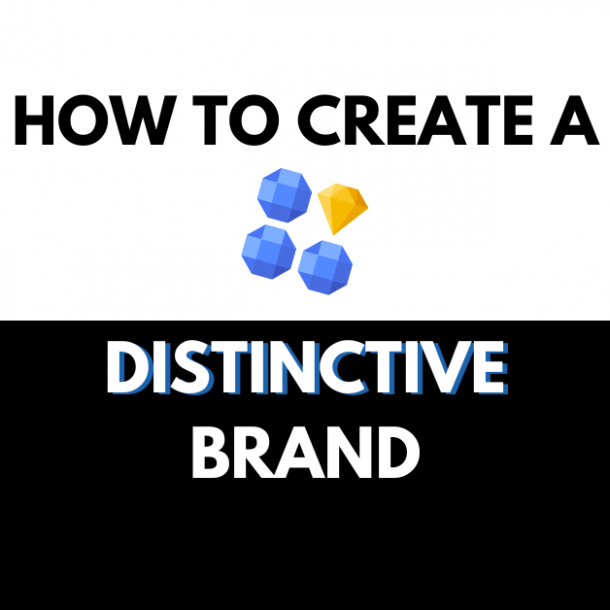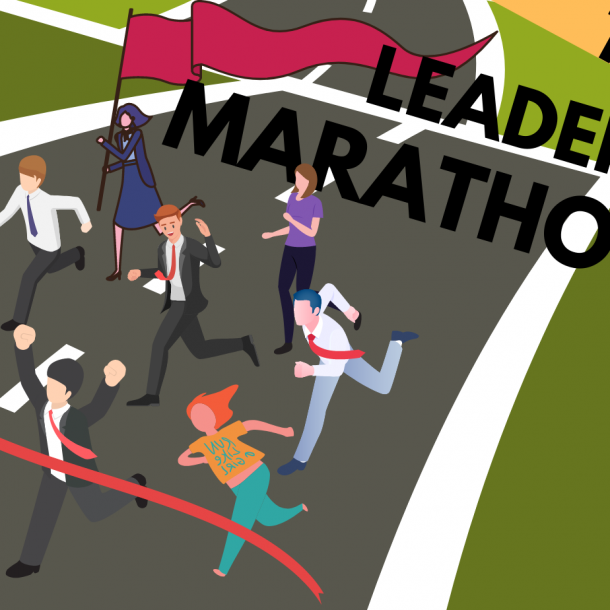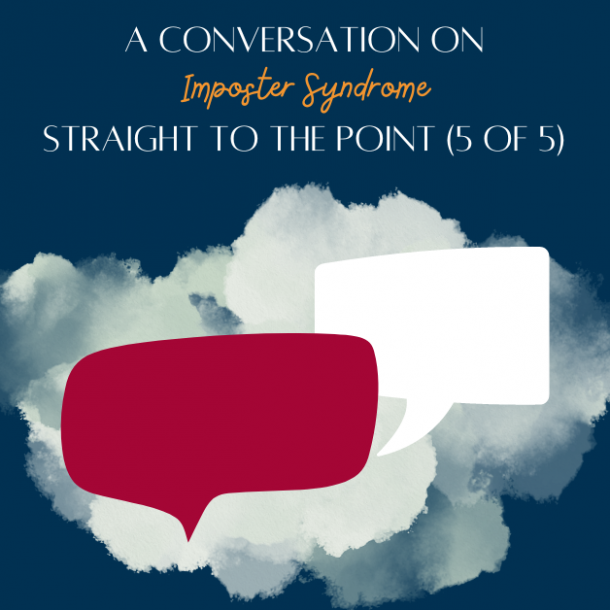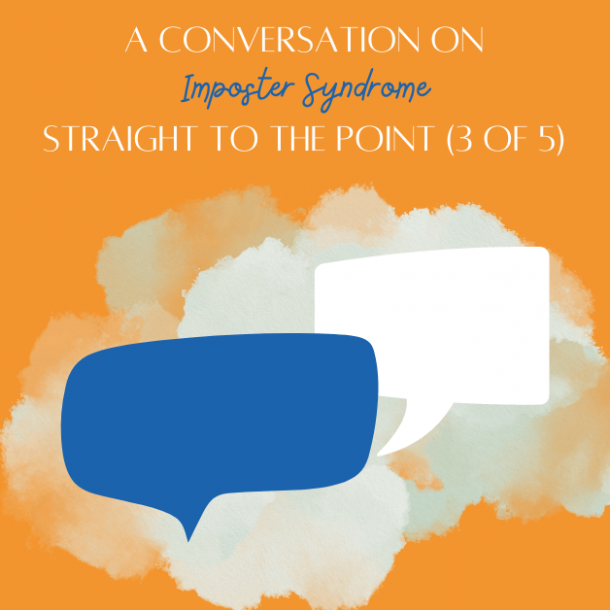
UpSkill: A conversation on imposter syndrome- Straight to the point (4 of 5)
In this blog post, we want to ask you what you would do differently if you didn’t have imposter syndrome, and what strategy would you use to help you work on it?
We don’t have enough time in this podcast to go over what I would do differently if I didn’t have imposter syndrome.
Peter let opportunities slip due to self-doubt. Without imposter syndrome his professional experience would be much more varied.
For Tiffany, she would have started her master’s degree sooner. By the time she actually committed to it, six years had passed since she first considered it.
Tiffany also would not have spent as much time trying to make all her deliverables (presentations, papers etc.) perfect. She wouldn’t have agonized over small details so much and learned to trust herself more. She’s still improving on this part of imposter syndrome but it has improved.
For Cadeem, he would have sought out more freelance work earlier in his career. For a while, he felt like a fraud trying to sell services (for editing or writing) to anyone.
Cadeem didn’t realize his value until someone sought out his skills. One of the students that he had taught at McMaster (as a teaching assistant) reached out to him for help editing and writing a magazine. That experience led me to realize that some people actually viewed him as a great mentor.
That experience, six years ago, led Cadeem to believe he could possibly edit for a career. It helped him establish career clarity as well. Career clarity is key to breaking through imposter syndrome, and mentoring others can help to foster it.
Cadeem also adds that you should not be discouraged if your attempts at mentorship are not always appreciated. Cadeem had 40 students. One of them saw real value in me and kept in touch. But that one ended up paying big dividends.
Sometimes we are expecting the fallacy that everyone you touch is gonna touch you back.
Sometimes you’re gonna go through thousands of people. Helping out, but that one person comes back with just the right thing to propel you to the next level.
When trying to combat imposter syndrome, we must also remember that comparison is the thief of joy. We can all look at friends or former coworkers and so forth, and compare our progress to theirs.
Cadeem used to look at his peers, some of whom he knew didn’t work as hard as he did. Yet they were more successful. That comparison used to make him bitter. Then he realized there are multiple forces at work that can lead to the discrepancy.
If someone is younger than you and you feel like they’re doing better, maybe they knew exactly what they needed to do and they set a more straightforward path to getting there.
It took Cadeem longer to get to where he is now, mainly because he lacked career clarity. For some people, they might just have more career clarity.
The people around you might have a network you don’t know about. You don’t know what other factors went into their success and you don’t necessarily need to feel discouraged by the fact that you don’t have what they have or that you’re not on the same level as they are.
You must run your own race.
You are ahead if you’re focusing on continuous learning, you’re ahead. You are ahead if behind the scenes you’re working and reflecting on who you are, building your awareness of yourself, focusing on your goals, making sure that you have an action plan.
You are not running the same race with the person beside you, just because they’re beside you. You’re not even in the same lap. OK. And so that’s one of the things that I always think about to help me build my confidence. I know that I’m working on myself very aggressively, consistently, and I know that most people are not dedicating that much time and effort to working on themselves.
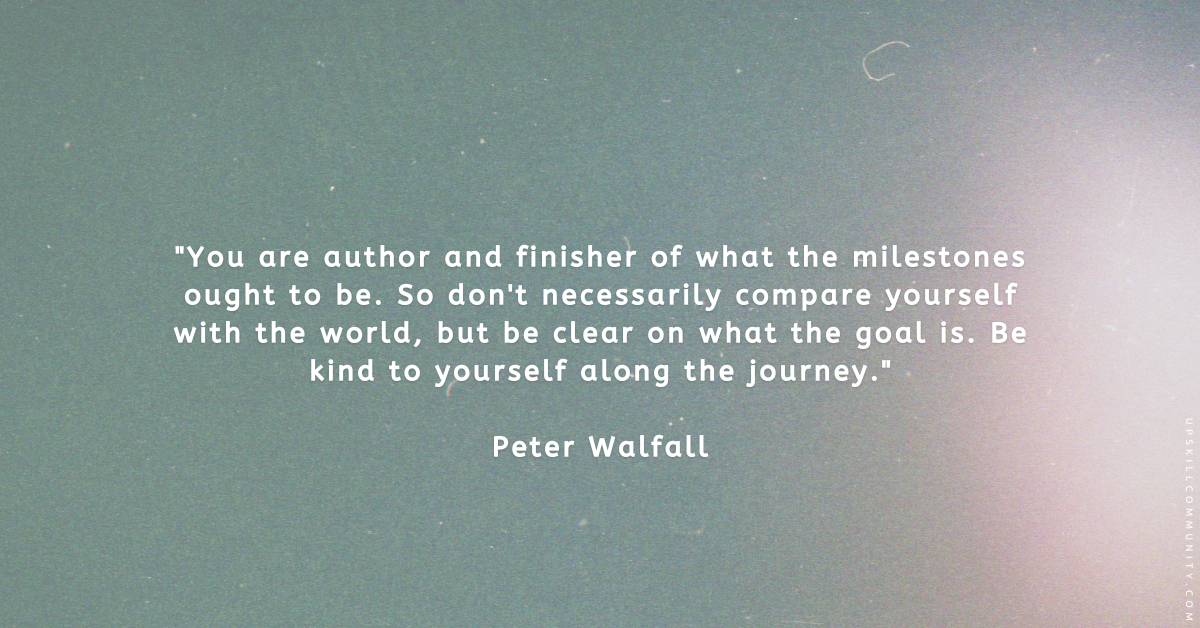
When you share or teach or mentor, you are moving yourself to a higher and higher level. When you are out there hiding your trade secrets, hiding what you know, it needs to come out to scrutiny. It needs to come out to get a different insight. There are holes in what we think, there are holes in our knowledge. If you put it out there, other people will poke holes at it to see if it’s what you think it is.
And through that process, we’re learning. Someone may have a completely different perspective on it. So we need to be sharing what you know, whether it’s a skill, an approach, a perspective, knowledge. Share it, help someone else. And I like this idea of paying it forward, supporting someone else, supporting mentoring, sponsoring.
These are things that we can do to support others, but also it’s supports us. And it helps to bust imposter syndrome.
Please take some time to consider how you can help mentor others to disrupt your own imposter syndrome We’ll continue this conversation next week.

